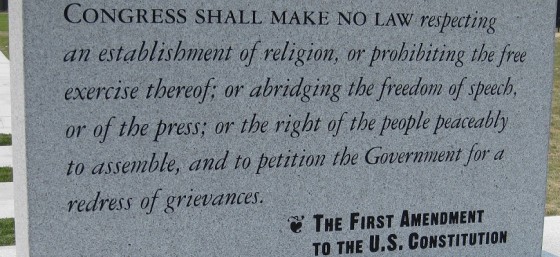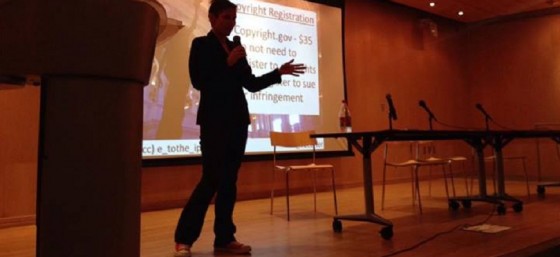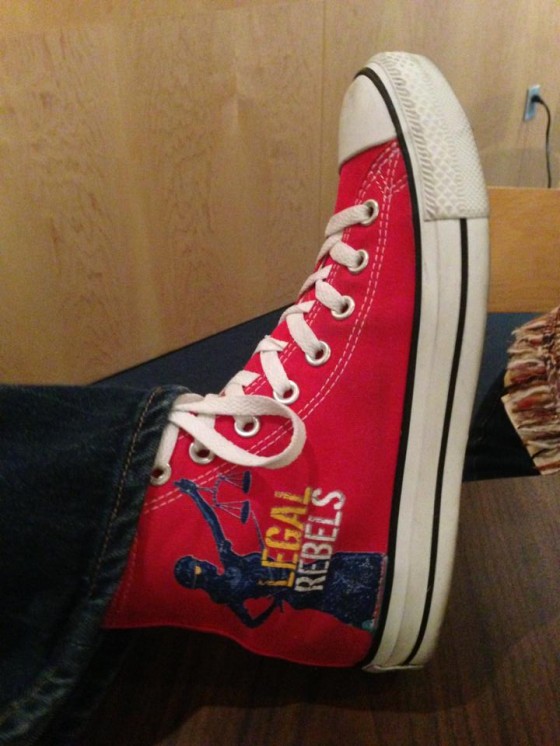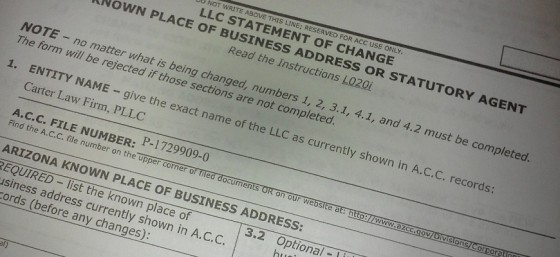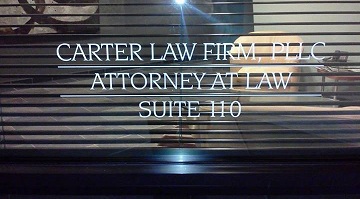
There was much rejoicing last week when Governor Jan Brewer vetoed SB 1062. This bill would have allowed anyone to refuse to do business with a patron based on their religious beliefs. The ultra conservatives said they were trying to protect their freedom of religion but most of us saw it for the bigoted attack against the LGBT community that it was. The outcry from the business community was fast and severe which is why I think this bill was shut down.
But now the Arizona legislature is at it again! Now they’re trying to pass a law (HB 2481) that would allow clergy members and justices of the peace to refuse to perform marriages if it violates their “sincerely held” religious beliefs. This is obviously a bill that is aimed at allowing officiants to legally refuse to perform same-sex marriages.
This bill is fucked up on so many levels. Let’s start with the fact that we have the separation of church and state. To be legally married, you need a valid marriage license and a marriage ceremony performed by a legal officiant. If you get married in the church without a license, that’s outside the realm of state-recognized marriages and has nothing to do with this bill.
A member of the clergy can already refuse to marry a couple in their church, synagogue, temple, etc. if the relationship violates the religion. And there are plenty of religions and clergy members that say homosexuality is wrong. Besides, why would you want to get married by someone who doesn’t approve of your relationship? Logically speaking, this situation will rarely happen and if it does, the clergy already have a valid reason to decline. We don’t need a law about this.
Remember same-sex marriage is not legal in Arizona so no state official can perform a legal same-sex ceremony anyway. This law is nothing but a pre-emptive strike against the expectation that same-sex marriage will be legal in Arizona some day and there may be judges and justices of the peace who are asked to perform legal (non-religious) marriage ceremonies that they disagree with. I’m sure they think there are straight couples who go to City Hall to get married where they disagree with what the couple is doing, but they suck it up and do their job.
When a judge or justice of the peace is asked to officiate these marriages, they are a state actor, not a clergy member. If they are uncomfortable with this part of their job, they should suck it up or quit.
And in case you didn’t know, Arizona allows people who are ordained online to perform legal marriages so you can have the friend of your choosing perform your ceremony.
Please contact your representative and tell them to vote No on HB 2481. We’ve already told our legislature once that we don’t want them to legalize discrimination. Let’s hope they get the message this time and stop trying to pass discriminatory legislation. And remember the names of the elected officials who are voting in favor of these bigoted laws so you know who not to vote for when they’re up for re-election.

